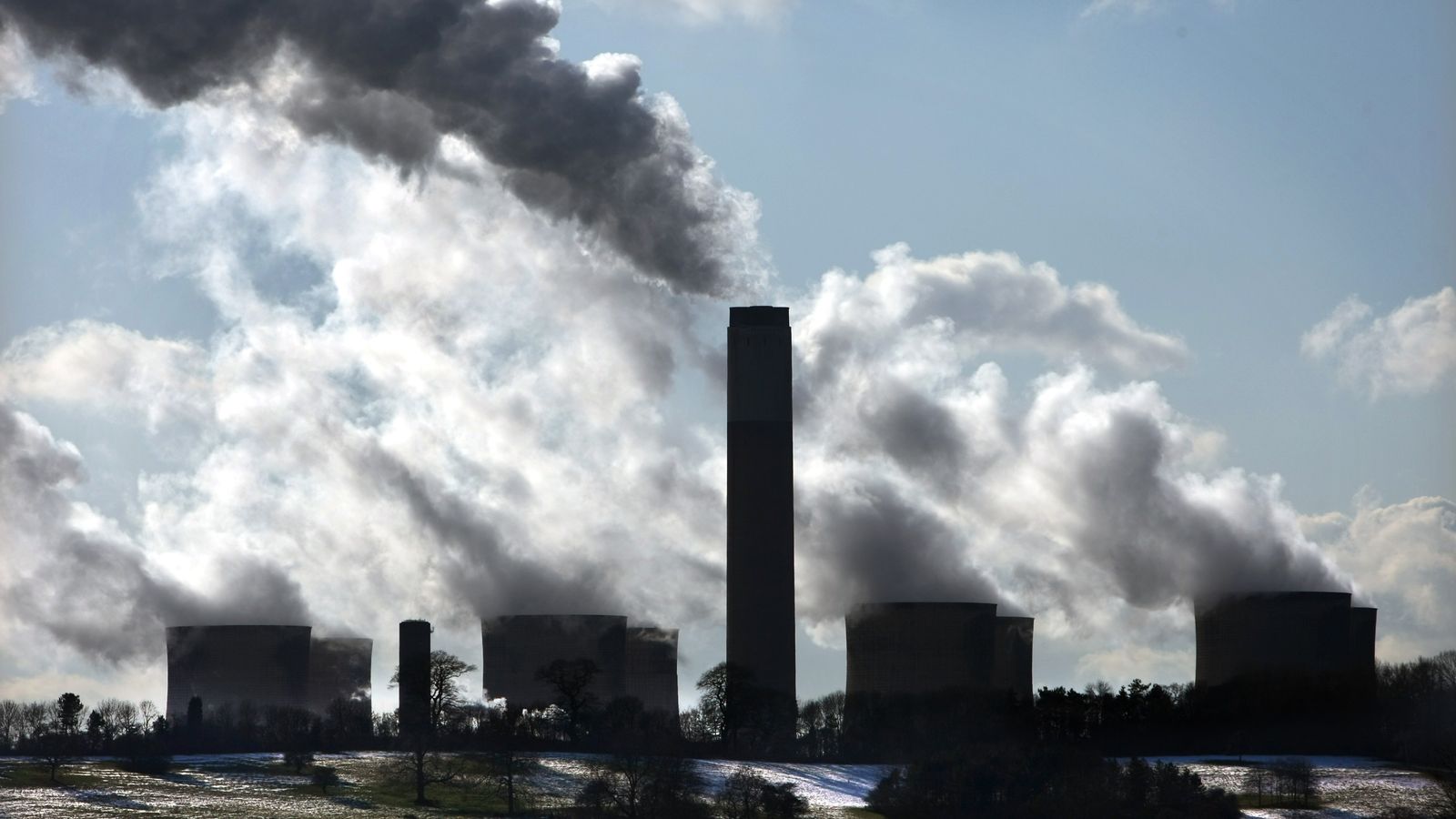The final coal-fired power station left in the UK will be shut down later on Monday amid the transition to renewable energy.
The closure of Uniper-owned Ratcliffe-on-Soar power station in Nottinghamshire will bring to an end a 142-year history of burning fossil fuel to produce electricity in the country.
The UK was the first, in 1882, to utilise coal for public power generation.
Money latest:
Top chef reveals his fried chicken recipe – and you can make it for cost of KFC
It will now be the first G7 nation to end its use as the void from gradual coal-fired closures has been filled by green alternatives including solar and offshore wind.
Coal accounted for around 80% of the country’s power needs in 1990 but has been phased out under efforts to combat climate change.
That transition, however, led by a continued dependence on volatile natural gas prices, has come at a cost with International Energy Agency figures showing the UK has the highest industrial power prices in the developed world.
It explains the competitiveness problem within UK manufacturing and, pertinently, the end of production at the country’s largest virgin steelworks on Monday.
Ratcliffe-on-Soar has been the last coal-fired power station standing in the UK since September 2023.
Such assets have been mainly held in reserve in recent years in case of generation challenges, such as a cold winter.
There were no coal-fired power plants paid to be on standby last year, compared to five in 2022/23.
Coal has accounted for less than 1% of UK generation in recent years though Ratcliffe was in use on Monday, providing 0.7% of the country’s electricity.
It has been generating power since 1968 and could provide enough electricity for two million homes.
It employs 170 staff.
Most will be kept on during the two-year decommissioning process.
Dhara Vyas, deputy chief executive of industry body Energy UK, said: “Ten years ago, coal was the leading source of this country’s power – generating a third of our electricity.
“So, to get to this point just a decade later, with coal’s contribution replaced by clean and low carbon sources, is an incredible achievement.
“As we aim for further ambitious targets in the energy transition, it’s worth remembering that few back then thought such a change at such a pace was possible.”
The Labour government is seeking to hit net zero emissions from electricity generation by 2030.
Its efforts to date have included a lifting of the de facto ban on onshore wind farms.
Energy minister Michael Shanks said: “Today’s closure at Ratcliffe marks the end of an era and coal workers can be rightly proud of their work powering our country for over 140 years. We owe generations a debt of gratitude as a country.
“The era of coal might be ending, but a new age of good energy jobs for our country is just beginning. The government’s clean energy superpower mission is about creating good jobs in wind power and new technologies like carbon capture and storage.
“That work is helping boost our energy security and independence, protecting families from international hikes in the price of fossil fuels and with it, creating jobs and tackling climate change.”

